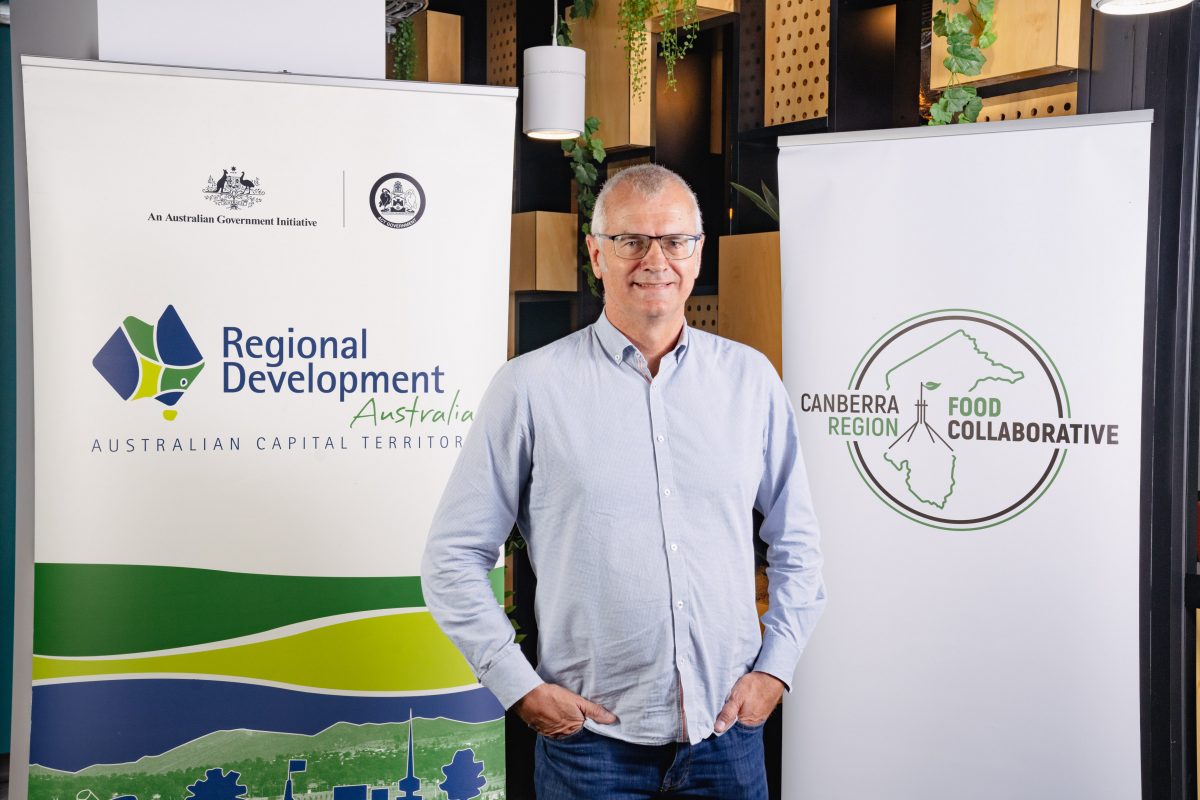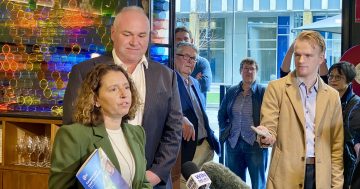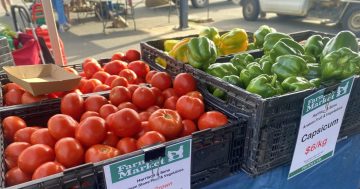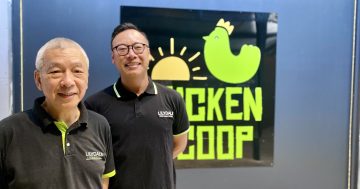
Pennie Scott sources almost everything from the Bush Goddess Foods offering from within 100 km of home base, boosting the local food economy. Photo: Bush Goddess Foods.
In 2010 owner of Bush Goddess Foods Pennie Scott penned a paper that posed a question: Does Australia have the capacity to feed itself in the event of pandemics, terrorist attacks and natural disasters?
It turned out an eerily prophetic paper from a regional sustainable farmer with a master’s in social ecology and agriculture and abundant experience as a providore in the Canberra and Riverina regions.
And while headlines report on the rising costs of food and Australians going hungry, Pennie insists there’s more than enough to go around.
“It’s not about productivity at all. The world is currently producing enough food to feed nine billion people,” she says.
“But wastage is up to 40 per cent as estimated by the UN [United Nations], and much of that waste comes somewhere between the paddock and our fridges.
“It’s in the distribution, it’s in the access.”

RDA ACT CEO Michael Claessens says the Territory’s local food system needs a shake-up. Photo: Liv Cameron.
It’s one of the problems being scrutinised by the Canberra Region Food Collaborative (CRFC), a project delivered by the federally-funded not-for-profit Regional Development Australia (RDA) ACT to assist the Territory Government with its forthcoming Food Strategy.
The CRFC uses a city-region framework, the nine major food stakeholder groups – one in which Pennie is a thought leader – get their say in shaping the ACT’s food future.
The trusted broker will provide forums, encourage investment, provide market intelligence and help garner government and corporate funding for local and regional food initiatives.
Through the CRFC, the RDA proposes a significant shake-up to the Territory’s approach to its local food system, which CEO Michael Claessens says is about “enough food being available to the right people at the right time”.
“This has become particularly critical now that we’re seeing disruption to the supply chains both nationally and internationally, stemming from war to cargo capacity constraints, failure of transport companies that specialise in food transport and so on,” he says.
“We’ve seen that there are lots of fragilities. This indicates in no uncertain terms that government and local businesses need to collaborate and address this. Fortunately the ACT Government is moving on food through its forthcoming Food Strategy.”
Digby Hall, a climate adaptation specialist and leading architect with a sustainable urban food focus says the CRFC performs a “critical role in joining the dots” of building a highly integrated food system.
“When you actually think of what’s involved in putting food on plates, it’s an incredibly complex chain with many moving parts and so many stakeholders,” he says.
“To get everyone – from farmers to policymakers, technology providers, start-ups and architects – inside the same ‘tent’ to look at that holistically is a challenging task let alone to get them to keep collaborating.
“But when they do get them together and they start to really work together, they realise they not only have complementary skills but want the same outcome – a resilient, abundant, healthy food system, and prosperity and profit made sustainably.
“The CRFC has got them together to start collaborating, but the challenge now is to bring that to scale. But we need more funding for that.”

Climate adaptation specialist Digby Hall says the CRFC performs a “critical role in joining the dots” of building a highly integrated food system. Photo: Grain Weave.
Digby says amplifying the discussions and initiatives from the CRFC at scale will help unlock “local food systems”, a crucial piece of Australia’s food puzzle.
“We don’t have a food production problem in this country. We export billions in food every year. What we have is an access problem,” he says.
“It’s incredibly frustrating that food is never part of a built environment brief. That’s one of the exciting things about what the RDA is doing in Canberra – they’re bringing this idea of sustainable food into a built environment – a region-to-city food system.”
This is also our greatest opportunity for dialling down emissions, according to Digby.
“Most people don’t realise our food is responsible for a third of global gashouse emissions. That’s more than all the transport and fashion industries combined. It’s more than every building in every city and town in the world combined.
“Unfortunately we’ve already locked in an awful raft of climate changes, so we have to decide now on adaptability. For me, urban food is key.”
Digby says everyone stands to benefit from a more integrated food system.
“We can shake out multiple benefits from better public health to more jobs and better incomes. And if you adapt a resilient food system to work in a city you’re also checking off climate adaptation.
“If we can bring that all together in an elegant way, we can still export food, if not even boost the nation’s exports.”
For more information visit the Canberra Region Food Collaborative.





















